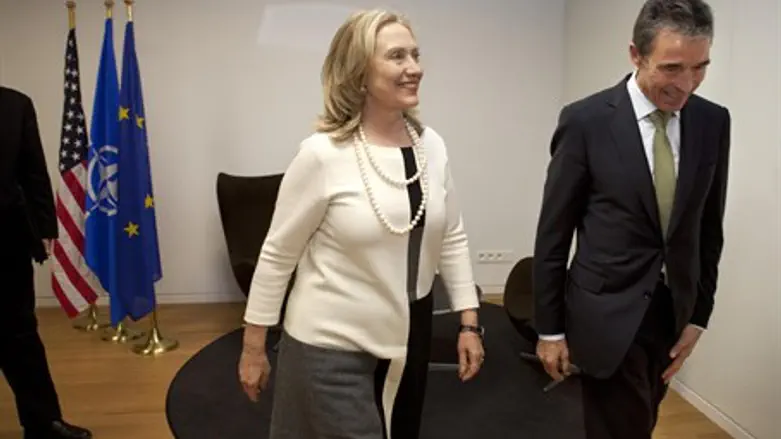
NATO Secretary-General Anders Fogh Rasmussen was at his diplomatic best in responding to Russian Foreign Minister Sergei Lavrov who was complaining about the premature NATO withdrawal from Afghanistan.
Lavrov fears that this may expose Russia to incursions by Muslim paramilitaries and drug trafficking. "As long as Afghanistan is not able to ensure by itself the security in the country, the artificial timelines of withdrawal are not correct and they should not be set," the Russian Foreign Minister told a NATO planning conference.
Russia has been providing alternate supply routes to Afghanistan ever since US relations with Pakistan soured as a result of the bin Laden hit and the friendly fire incident that caused the death of Pakistani soldiers in the borderland region between Pakistan and Afghanistan.
Russia has even been willing to augment these facilities. It is, however, worth noting that the Russian attitude was not always sweetness and light - particularly when the NATO forces appeared to be in Afghanistan for the long haul. At that time, Russia and the Chinese attempted to dislodge the United States from Central Asia.
Now that it belatedly realizes that NATO is on its way out of Afghanistan, as Western public opinion has soured on the conflict and its toll in lives and money, Russia is apprehensive about the prospects of confronting an unstable or Taliban-controlled Afghanistan.
The last thing that NATO wants is for Russia to send its own troops to Afghanistan, given the bitter memories of the Soviet military presence in that country.
Rasmussen defended the NATO withdrawal plan as something that was not artificial and expressed his appreciation for Russian logistics services. If the Russians. however. really want to help the situation, he intimated that they could do so by offering money. “We would welcome financial contributions from Russia, China and other countries to ensure a strong, sustainable Afghan security force beyond 2014,”.
Not only is NATO withdrawing, but proposals are on the table to cut the Afghan security force by one third. The reason for the troop cuts is the budgetary situation, particularly in Europe.
The Afghan forces are to be cut from their current strength of 350,000 to approximately 225,000. This would be enough to save $2 billion a year. On the other hand, those Afghan soldiers made redundant could not be expected to view the situation with equanimity and could even defect.
Rasmussen was effectively telling the Russians, in a nice way, to put up or shut up. The ball is in now and Vladimir Putin's court.